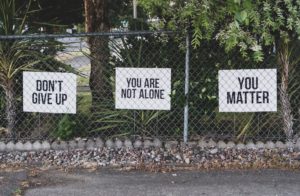A clue as to the nature of the greatest barrier to quitting smoking is given in the utterance of a smoker patient who said to me, ‘Thank you very much for the offer, Dr Symonds, but I’m not going to come for your stop-smoking session because I’m afraid that if I did, I would succeed.’
Now, as part of my on-going research into smoking and smokers, I recently joined a couple of stop-smoking support-groups. As I have said before, anything that helps smokers to quit permanently is to be welcomed, and it doesn’t matter how someone does it as long as they succeed. I am sure these online sites are helpful to the participants even though they may get advice and encouragement from complete strangers. On the other hand, however, they sometimes seem to offer support to someone for his or her failure to quit.
A striking aspect of these groups is the accounts by some people of their difficulties and even the heart-wrenching struggles they go through in their efforts to quit smoking and how they feel guilty about failing, and confess this online. In addition, people who are unhappy or are facing other problems, particularly health problems, in themselves or their loved ones, use these forums to reveal intimate details and seek sympathy, or even pity, from strangers. This can only be a good thing for people who have few or no other sources of help or support.
I did post a few comments myself, in a way that was purely intended to be helpful. For example, to one woman who said stopping was extremely difficult, I suggested that instead of focussing on why quitting seemed so hard, she might try looking at the problem from the other way round: why did she want to keep smoking? This received an appreciative response. I also suggested there is an easier way of quitting than using willpower, drugs and nicotine products.
But when I indicated on another site, using my real name, that quitting needn’t be so difficult, I got an immediate, anonymous response that I reproduce here:
Ahhhhh…Everything is becoming so much clearer now…the clouds are shifting to reveal…oh…wait for it…You have a ‘Easy quit smoking’ book out. Hummmm, well, when was that going to come up in the conversation? You have no real idea of how the majority of ex smokers feel, yet feel superior enough to write books on the subject. You are definitely not worth any more of my time.
I couldn’t respond to this because the person had obviously complained to the administrator and I was barred. What she (the username suggested it was a woman) seemed to be saying, in effect, was, ‘For goodness’ sake don’t cure me of smoking!’
The easy way to quit, as indeed I explain in my latest book, Stop Smoking with the Symonds Method: All You Need to Know to Stop Smoking Easily, is for smokers to ask themselves why they want to keep smoking. They may well agree that it’s a pointless and harmful thing to do, but what then? The answer to this question leads us to the crux of the problem: that the only reason smokers smoke is because of their perceived inability to quit. The next step is to look at what happens (if anything) when one hasn’t smoked for a while.
That brings me to another point that one correspondent raised: stopping smoking doesn’t only depend on logic. This is doubtless true, otherwise no one would even start smoking, or if they did start from ignorance of the potential consequences they would stop as soon as they saw the warning label on the cigarette pack.
Therefore, one needs to ask, if it’s not logical to smoke, why do so many people nonetheless do it? The answer, as I have often said, is that smokers smoke because they are addicted to the nicotine in the cigarettes, and addiction is difficult to cure by logic.
On the other hand, in my experience of successfully treating hundreds of smokers, although logic of itself is of little help in quitting, in the case of nicotine addiction (as opposed to the much more difficult problem of alcoholism, for example) it is amenable to understanding of how the mechanism of addiction keeps you smoking.
There is another aspect to all this. Obviously, before you stop smoking you have to start doing it, ignoring all the warnings not to. Then when and why do you decide you want to stop? After you’ve read the health warnings and seen the horrible pictures a thousand times? When your doctor tells you that you will die if you don’t quit? The unfortunate truth for most smokers, or at any rate those who’ve been doing it for years or decades, is that, in spite of what they may say, they don’t really want to quit.
Text © Gabriel Symonds
Photo credit: Dan Meyers on Unsplash


Leave A Comment